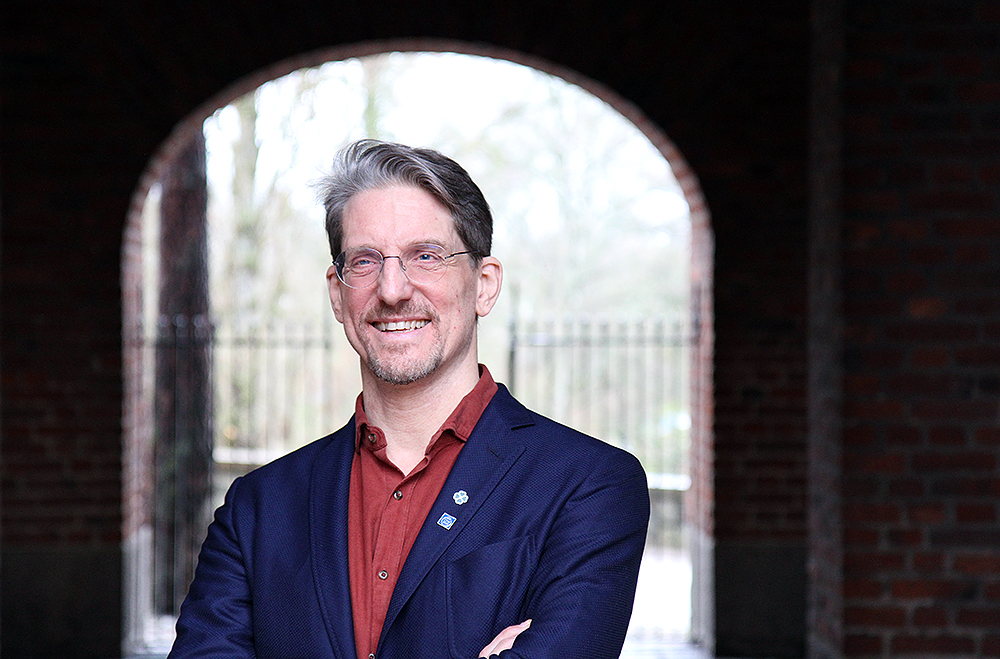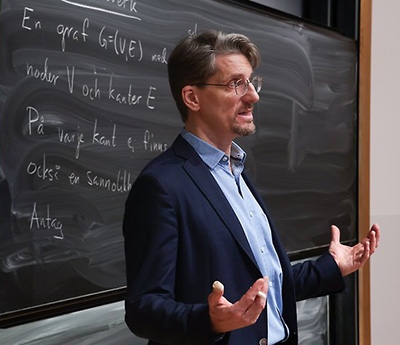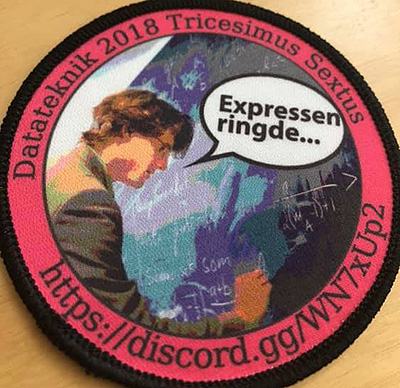Mathematician believes in teamwork

Make a difference. This is the driving force for Svante Linusson, a maths professor who has also had a political career alongside his academic one.
“It's about both when students learn and when that cycle track I fought for becomes a reality,” he says.
He is quick to laugh and exudes a boyish eagerness. Anyone who visits Svante Linusson at the Department of Mathematics is greeted with a warm smile. He obviously enjoys his teaching job at KTH.

“The best thing is to teach, to have contact with students, to explain and to realise that they are learning. Many students at KTH are very skilled, which makes it extra fun,” he says.
At the same time, maths is a subject that many students dread. Svante Linusson says that the most important thing is to start studying in time, not the week before the exam. Maths is a language that you have to learn to speak, he says.
“I've had a lot of students who think it's difficult, but then they've decided to do it, they’ve sat down and practised and practised and then they've passed the exam.”
To get started immediately is also a recurring theme in the course evaluations when students give advice to prospective students: Work with the material throughout the course. Then it will not be super difficult in the end.
Maths labs
An important part is the maths labs, led by the department's PhD students, where students can test their knowledge. Linusson believes that if more students participated, the test results would be even better, emphasising that learning is a team effort.

“We are usually smarter in groups and better at making progress together. Maybe everyone knows a little bit about each other and then you can discuss your way to a solution.”
Linusson came to Stockholm and KTH in the early 1990s for an academic career at record speed. He received his PhD just after his 26th birthday and became a professor at Linköping University at the age of 30, probably the youngest professor in the country at the time, including all subject categories.
His political career began around the same time. It was mainly local environmental issues that engaged him and, among other things, resulted in more cycle lanes in the city centre. But Linusson is probably best known as an expert on political electoral systems.
Highest honour
It started when he drew media attention to the shortcomings of the Swedish system and warned that the distribution of seats in the 2010 parliamentary elections could be disproportionate. Since then, he has debated the issue countless times, sat as an expert in investigations and explained electoral mathematics to the Swedish people on radio, in TV studios and newspapers.
“As a mathematician, it is both a pleasure and a privilege to be able to influence such important issues,” he says.
Linusson also brought the electoral system into his teaching. And when things were at their most intense, in the 2018 election, the students of computer science had a cloth badge sewn up with his portrait that adorned their overalls during their five years at KTH.
“It is probably the finest honour I have received from any student.”
Development of AI
In this summer's EU elections, he is one of the candidates, and with AI issues at the top of his agenda. He wants to see greater investment in research in the field, given the rapid pace of development and the impact of AI on all sectors of society.
“The EU needs to take action to avoid being left behind by the US. But we also need better regulation to be able to steer developments in the right direction,” says Linusson.
He believes that more research is the answer to counteracting the development of AI that could potentially threaten humanity.
“Today we don't really know how to prevent an “evil” development, so we need to think carefully about this by exploring the issue.”
Linusson is third on the list for a party that currently holds two seats in the European Parliament. So how likely is he to be elected? As a maths professor and expert in probability theory, he is keen to make an informed statement.
After a bit of number crunching, the answer comes:
“42.5 per cent chance,” he says with a smile.
Text: Christer Gummeson ( gummeson@kth.se )
